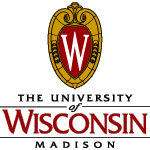Strengthening software self-checksumming via self-modifying code
Jonathon T. Giffin, Mihai Christodorescu, and Louis Kruger.
Technical Report #1531, Computer Sciences Department, University of Wisconsin.
Madison, Wisconsin, September 2005.
All student authors.Recent research has proposed self-checksumming as a method by which a program can detect any possibly malicious modification to its code. Wurster et al. developed an attack against such programs that enables code modifications undetectable to any self-checksumming routine. The attack replicated pages of program text and altered values in hardware data structures so that data reads and instruction fetches retrieved values from different memory pages. A cornerstone of their attack was its applicability to a variety of commodity hardware: they could alter memory accesses using only a malicious operating system. In this paper, we show that their page-replication attack can be detected by self-checksumming programs with self-modifying code. Our detection is efficient, adding less than 1 microsecond to each checksum computation in our experiments on three processor families, and is robust up to attacks using either costly interpretive emulation or specialized hardware.
An alternate version of this paper is available as a conference publication.

